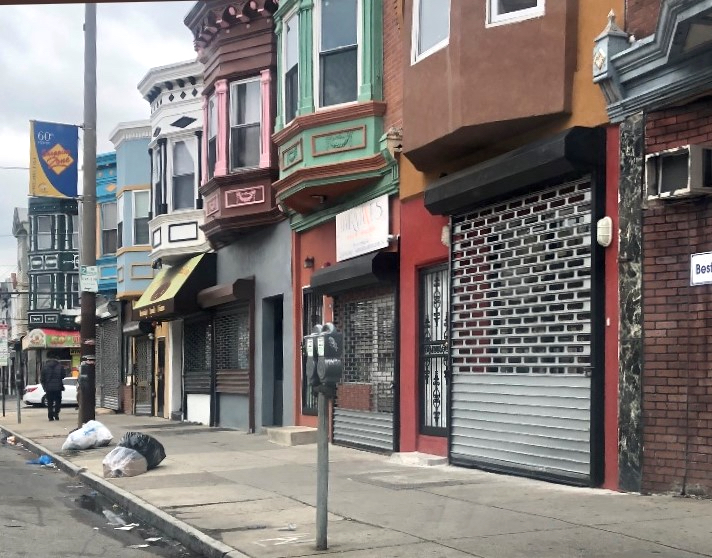As the COVID-19 pandemic endures and Philadelphians plan strategies to recover from it and the current recession, a few core ideas how the City of Brotherly Love can bounce back have popped up repeatedly.
Workforce development, for one — preparing those who have lost jobs for more resilient careers. And small business support has been touted as a necessity across the country (and is a major part of Congress’ new $900 billion aid package, which includes a re-up of the Paycheck Protection Program.)
But what else is specific to Philadelphia, with its uniquely high poverty rate?
Ashley Putnam, director of the Federal Reserve Bank of Philadelphia’s Economic Growth & Mobility Project, led a discussion with Pew Charitable Trusts’ Philadelphia research and policy initiative senior adviser, Larry Eichel, and PolicyLink Senior Associate James Crowder on how the city can respond to its current circumstances during last week’s Philly Forward Forum.
The big takeaways from their “Build Back Better” session:
Workforce development should be prioritized — and we should think bigger about what that looks like.
Crowder said he believes the combination of the pandemic and recession present an opportunity for communities to invest more in workforce development programs and better equip workers for success.
“It’s also a time to think long-term in terms of workforce development and training to give workers access to new opportunities,” he said. “Now is the time to think big about transformative policies like federal job guarantees. The time is now to invest in infrastructure like failing roads and bridges and give people jobs that pay a sustainable living wage.”
Lower-cost housing means less in a city ridden by poverty.
According to Eichel, housing prices and rent in Philadelphia are lower than many other American cities, and it’s shifting from being a shrinking city to a growing one. However, gentrification and an influx of residents from other places cause concern over the city being affordable but for only for some.
In Philadelphia, “40% of city’s households are cost-burdened and spend 30% of income on housing,” he said.
Eichel expressed hope that the recent announcement of the Neighborhood Preservation Initiative can help change that.
Philadelphia needs a higher minimum wage for workers.
Eichel said that before the pandemic, Philadelphia enjoyed more than a decade of growth coming out of the Great Recession. Philadelphia still has a stunningly high poverty rate of 23%.
“The poverty rate is higher than three-fifths of the cities the census tracks,” he said. “[It] is highest among Hispanics, concentrated within city limits and not as much in other cities. The federal minimum wage is $7.25. The city has the ability to go higher still and Philly has not done that. Taking into account wages in the region, Philly has the lowest minimum wage of any major city in America.”
Middle-skill jobs need more support.
Crowder said employers frequently cite a lack of “soft skills” as justification for hiring employees of diverse backgrounds, limiting the wealth gap among communities. Helping people find middle-skill employment — jobs that require some specialized training beyond a high school degree, but not a college degree — can change that.
“Middle-skill jobs go unfulfilled throughout the country,” he said. “[Approximately] 70% of people don’t have a college degree and that’s reality. Everyone is not meant to go to college or be a home owner. Occupational licensing can be a barrier for folks. A lot of states have restrictions on licenses people can get and they often have nothing to do with the work that can be done.”
The city needs must invest in small businesses.
Citing an August 2020 Pew study, Eichel cited the need for more small business growth in Philadelphia.
“Philly had the smallest mid-sized business start up per capita,” he said, and “5.6% of Philly adults identify themselves as self-employed business owners. This translates to less small-scale businesses and families building wealth with seeds of entrepreneurship.”
Some possibly good (and surprising) national news: Entrepreneurship rates are way up during the pandemic, with applications for new businesses surging in 2020, including a year-over-year increase of 47.5% in Pennsylvania.







